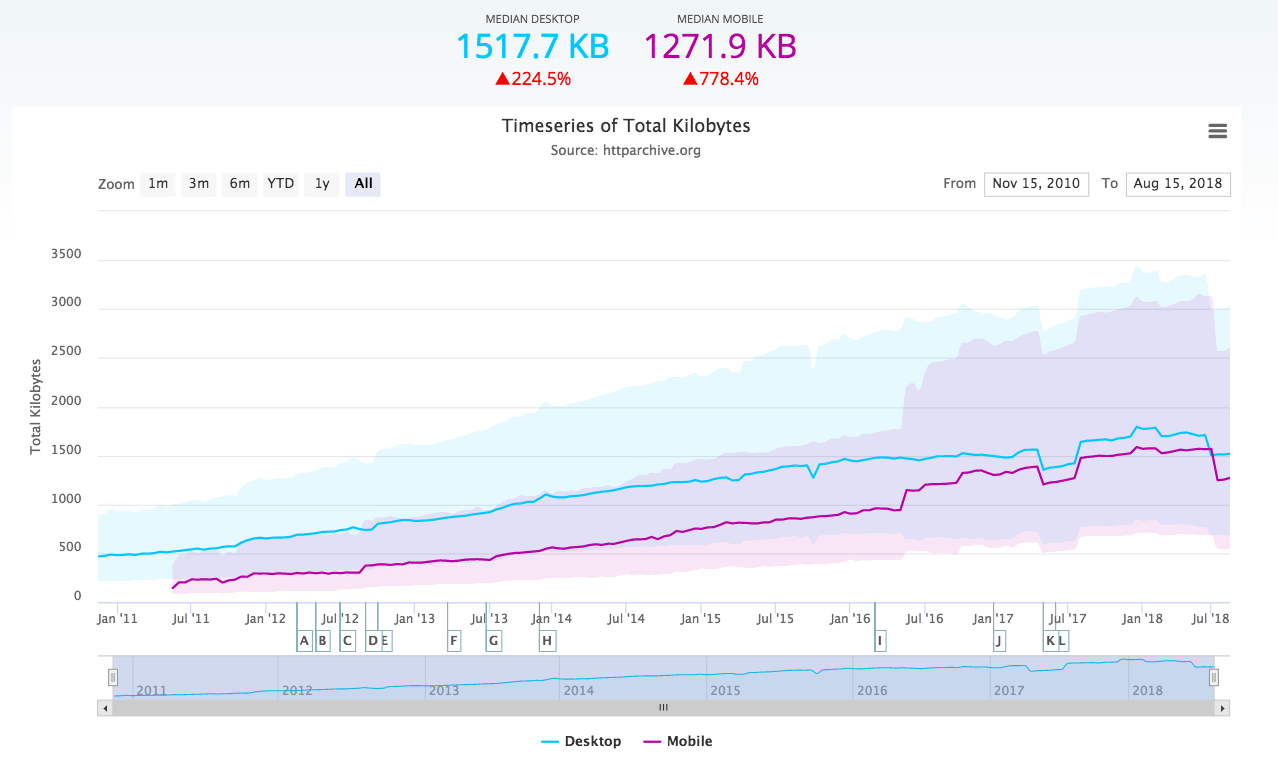
The rapidly changing nature of the Web makes it necessary for web developers to constantly be on the lookout for new, shiny tools. This post will hopefully show you some cool tools you didn’t already know about.
Providing you with a list of the ten BEST open source tools for web developers would have been great, but it would be negligent to call this a top ten list because there are so many different tools out there that fall under the Free/Libre/Open Source category. Developers can be notoriously choosy when it comes to the tools they use and it’s close to impossible to create an objective top ten list. Instead, this post presents ten highly useful tools that can make a web developer’s job easier.
In order to be included in this list:
- The project/tool has to be available on the three major platforms; Mac, Windows, and GNU/Linux.
- The source code has to be available to any and all developers.
- Finally, it has to be truly useful to web developers.
By the way, if you were expecting another list with GIMP, FileZilla, and Firefox you are in for a disappointment. These big names were purposely left out to make room for some of the lesser known projects that show promise. So here they are, in no particular order…
OpenLaszlo
![]() This Bossie (InfoWorld’s Best of Open Source Software) winner allows you to create Rich Internet Applications, or RIAs, without the cost of Adobe Flex Builder. OpenLaszlo not only provides developers with a great tool for creating dynamic, interactive websites, but it chips away at the theory that FLOSS doesn’t work in the business world. Both H & R Block and Wal Mart’s web sites are featured in the OpenLaszlo showcase.
This Bossie (InfoWorld’s Best of Open Source Software) winner allows you to create Rich Internet Applications, or RIAs, without the cost of Adobe Flex Builder. OpenLaszlo not only provides developers with a great tool for creating dynamic, interactive websites, but it chips away at the theory that FLOSS doesn’t work in the business world. Both H & R Block and Wal Mart’s web sites are featured in the OpenLaszlo showcase.
Silex
 Geared towards webmasters, graphic designers, and Flash developers, Silex provides a content management system that allows you to build a Flash website with any type of media. Silex has been used by companies and individuals to create and manage websites, make CD-ROMs, display database content, deploy touch screen applications, and many more uses.
Geared towards webmasters, graphic designers, and Flash developers, Silex provides a content management system that allows you to build a Flash website with any type of media. Silex has been used by companies and individuals to create and manage websites, make CD-ROMs, display database content, deploy touch screen applications, and many more uses.
Amaya
 Go green, promote open source. Amaya, a lightweight web authoring tool not only falls under the open source definition and GNU GPL, but because it is lightweight, it uses far less computing resources than its counterparts. Its functionality ain’t too shabby either. Acting as both a browser and an editor, Amaya allows the developer to create, edit, view, copy, paste, and upload all from within a single environment.
Go green, promote open source. Amaya, a lightweight web authoring tool not only falls under the open source definition and GNU GPL, but because it is lightweight, it uses far less computing resources than its counterparts. Its functionality ain’t too shabby either. Acting as both a browser and an editor, Amaya allows the developer to create, edit, view, copy, paste, and upload all from within a single environment.
OWASP WebScarab
 Touted primarily as an intercepting proxy for HTTP requests, WebScarab also works extremely well as a vulnerability scanner for nasty little things like Cross-Site Scripting and SQL injection points that may exist on your website. So, not only does WebScarab help debug problematic web applications as a proxy, but when running in fuzzer mode it helps developers identify possible vulnerabilities in their site.
Touted primarily as an intercepting proxy for HTTP requests, WebScarab also works extremely well as a vulnerability scanner for nasty little things like Cross-Site Scripting and SQL injection points that may exist on your website. So, not only does WebScarab help debug problematic web applications as a proxy, but when running in fuzzer mode it helps developers identify possible vulnerabilities in their site.
The community that sponsors the project, the Open Web Application Security Project (OWASP), brings some pretty heavy hitters in the security industry to the table as supporters.
KompoZer
 Looking for an open source replacement to the high-priced WYSIWYG authoring tools? KompoZer is it. Built from Nvu and managed by Mozilla, this little tool packs quite a punch when it comes to web design. Not only does it bring the famous tabs from Firefox, but it comes complete with an FTP site manager, a color picker, CSS editor, form editor, and much more.
Looking for an open source replacement to the high-priced WYSIWYG authoring tools? KompoZer is it. Built from Nvu and managed by Mozilla, this little tool packs quite a punch when it comes to web design. Not only does it bring the famous tabs from Firefox, but it comes complete with an FTP site manager, a color picker, CSS editor, form editor, and much more.
Eclipse
 The Eclipse software development environment is comprised of the IDE and plug-in system that allows programmers to develop applications in Java , C, C++, COBOL, Python, Perl, PHP, and other languages. Eclipse is another lightweight application running only a small run-time kernel. The actual functionality of the IDE comes from the large number of plug-ins available.
The Eclipse software development environment is comprised of the IDE and plug-in system that allows programmers to develop applications in Java , C, C++, COBOL, Python, Perl, PHP, and other languages. Eclipse is another lightweight application running only a small run-time kernel. The actual functionality of the IDE comes from the large number of plug-ins available.
Editra
 Built on wxWidgets, this cross-platform text editor holds quite a bit of functionality in a small package. In addition to including syntax highlighting for over sixty programming languages, Editra boasts tabbed windows, language keyword helper, line edit commands, transparency support, as well as custom workspace views. Editra boasts a large library of plug-ins as well that help enhance its functionality. For example, the Launch plug-in lets you run scripts from within Editra and allows for custom output parsing and filtering in many of the supported languages.
Built on wxWidgets, this cross-platform text editor holds quite a bit of functionality in a small package. In addition to including syntax highlighting for over sixty programming languages, Editra boasts tabbed windows, language keyword helper, line edit commands, transparency support, as well as custom workspace views. Editra boasts a large library of plug-ins as well that help enhance its functionality. For example, the Launch plug-in lets you run scripts from within Editra and allows for custom output parsing and filtering in many of the supported languages.
Selenium
 Need to test web applications but don’t know a scripting language? Selenium can help. Selenium IDE is a Firefox add-on that records clicks, typing, and other actions to make a test, which you can play back in the browser. Remote Control lets you run the tests in different browsers or on different platforms for a comprehensive run of your application in many different environments.
Need to test web applications but don’t know a scripting language? Selenium can help. Selenium IDE is a Firefox add-on that records clicks, typing, and other actions to make a test, which you can play back in the browser. Remote Control lets you run the tests in different browsers or on different platforms for a comprehensive run of your application in many different environments.
Xenu
 Xenu checks for broken links in normal text links, images, frames, plug-ins, backgrounds, local image maps, style sheets, scripts and java applets. Once you have run a check against your site, Xenu offers you a multitude of sorting criteria and reporting features.
Xenu checks for broken links in normal text links, images, frames, plug-ins, backgrounds, local image maps, style sheets, scripts and java applets. Once you have run a check against your site, Xenu offers you a multitude of sorting criteria and reporting features.
To help verify if links really are broken, or just down due to network errors, Xenu allows you to recheck broken links. And, Xenu works with SSL as well!
OpenSourceTemplates.org
 Ok, so this doesn’t fall into the same category as the rest but templates are definitely tools of the trade. While there is no real source code, these templates all fall under the Creative Commons license so they can be used on both commercial and non-commercial sites. While there are other open source template sites, Open Source Templates clearly states their licensing on their homepage and doesn’t combine commercial templates in with the Creative Commons ones.
Ok, so this doesn’t fall into the same category as the rest but templates are definitely tools of the trade. While there is no real source code, these templates all fall under the Creative Commons license so they can be used on both commercial and non-commercial sites. While there are other open source template sites, Open Source Templates clearly states their licensing on their homepage and doesn’t combine commercial templates in with the Creative Commons ones.
It is definitely worth your while to check back frequently since the templates change.
We hope you found something new in this list that you will have good use of as a web developer!
About the author:
Jeff Orloff is a technology writer and consultant. His work can be found at JeffreyOrloff.com and SequoiaMediaServices.com. His favorite project is the iLAND5 network built specifically for kids.


























